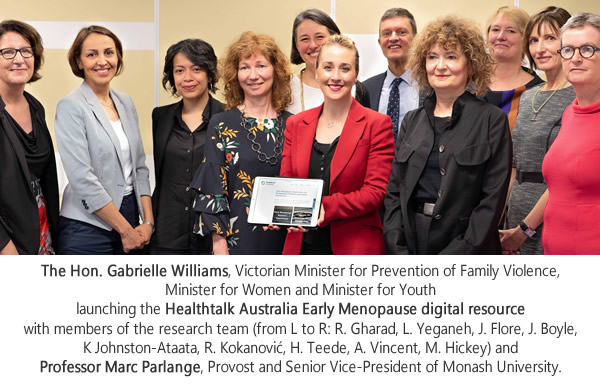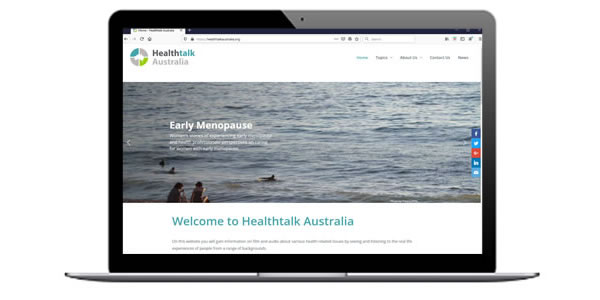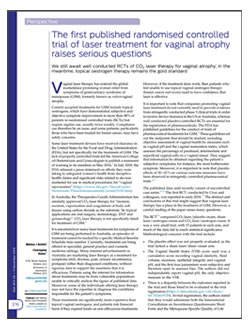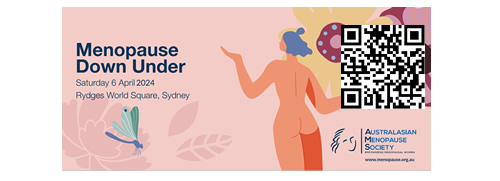From The Medical Republic - 9 September 2019
A large study in The Lancet has thrown shade on hormone replacement therapy again by linking it to breast cancer, but experts say the data reflect old prescribing habits and that the benefits of HRT outweigh the risks for many women.
The study was conducted by a group of UK epidemiologists, called The Collaborative Group on Hormonal Factors in Breast Cancer, that have been collecting worldwide data on HRT (also now known as Menopausal Hormone Therapy or MHT) for decades.
Their latest meta-analysis pooled data from 58 observational studies, including about 600,000 women.
The study found that all types of HRT were associated with an excess risk of breast cancer, except topical vaginal oestrogen.
The risk was higher in post-menopausal women who used HRT for longer periods of time, and in women who used HRT more regularly.
Oestrogen-progestogen carried a higher risk of breast cancer than oestrogen-only therapy, and the risk increased over time.
After five to 14 years on oestrogen-progestogen, the risk of breast cancer had doubled compared with never-users.
If these relationships were found to be causal, around one million cases of breast cancer could be linked to HRT use since 1990, the authors estimated.
But these conclusions have been soundly refuted by Australian experts.
It had been known for some time that HRT slightly elevated the risk of breast cancer, but this study was probably overexaggerating the risks, Professor Susan Davis, the president of the International Menopause Society and an endocrinologist based in Melbourne, said.
The paper in The Lancet was based on observational research, which could not control for unknown confounders and could therefore be misleading, she said.
The risks of breast cancer reported by the Women’s Health Initiative (WHI) were probably closer to the truth, Professor Davis said.
The WHI was a randomised trial of 27,000 US women in the 1990s, which revealed that oestrogen plus progesterone increased invasive breast cancer risk by 24% compared with placebo over six to seven years.
However, both studies used older HRT preparations that clinicians no longer prescribed, which limited their relevance to current patients, she said.
“Today, we use non-oral oestrogen, which we can prescribe as a patch or a gel, so we can use much, much lower doses.
“And we prefer to prescribe it with progesterone, which is not the synthetic progestogen. That may have very different effects. We really don’t know but … there are some data to suggest that these are much safer.”
The Lancet paper only addressed breast cancer risk, but “HRT is never unidimensional”, Professor Davis said. “You might have a small increased risk of breast cancer maybe [from using HRT] but you also might have a profoundly reduced risk of fracture.”
HRT was also known to reduce the risk of cardiovascular disease and diabetes, so clinicians needed to carefully weigh the costs and benefits for the individual patient, Professor Davis said.








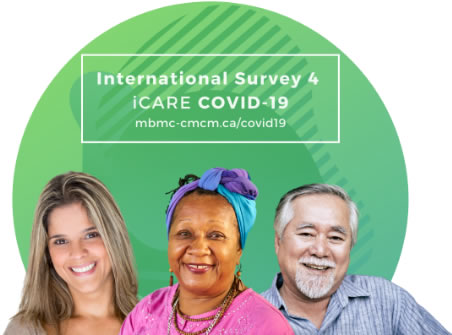 For the past few months, people have been feeling the impacts of COVID-19 on their daily lives.
For the past few months, people have been feeling the impacts of COVID-19 on their daily lives. 
